A niche sub-set of less than blood-thirsty virtual explorers are taking gaming tourism to the next level with real-time, in-person, street photography tours. Toby Skinner reports
My street photography workshop with Prague-based photographer Ondřej Vachek isn’t perhaps typical. We meet in 1899, on a foggy, golden-lit morning in the Deep South city of Saint Denis, with its Creole townhouses, clanking trams, circus sideshows and gilded saloons.
At one point, I attempt to crouch to get the right angle on a Southern belle with a fan and a velvetine bonnet, but accidentally strangle her. Vachek – who usually shoots in black and white, like his heroes Don McCullin and Sebastião Salgado – advises me to get closer to photograph the poor lady’s slumped corpse. As he does so, he coolly takes out his Cattleman revolver and shoots the witness to my crime.
We are in the online mode of Red Dead Redemption 2, the Wild West video game released in 2018 by Rockstar Games, the acclaimed and sometimes controversial team behind the Grand Theft Auto series.
Like the Los Santos of Grand Theft Auto V, the game’s enduring star is its living, breathing open world – a visually lush distillation of 19th-century America, from the Rockies-inspired Grizzlies West down to the Bayou Nwa region, with its swamplands and plantation homes straight out of Louisiana (Saint Denis, the capital, is pure New Orleans).
This world has had a lifespan far beyond the single-player story itself, a 60-hour epic focused on Arthur Morgan, the ageing antiheroic enforcer of an existentially-threatened gang of outlaws. 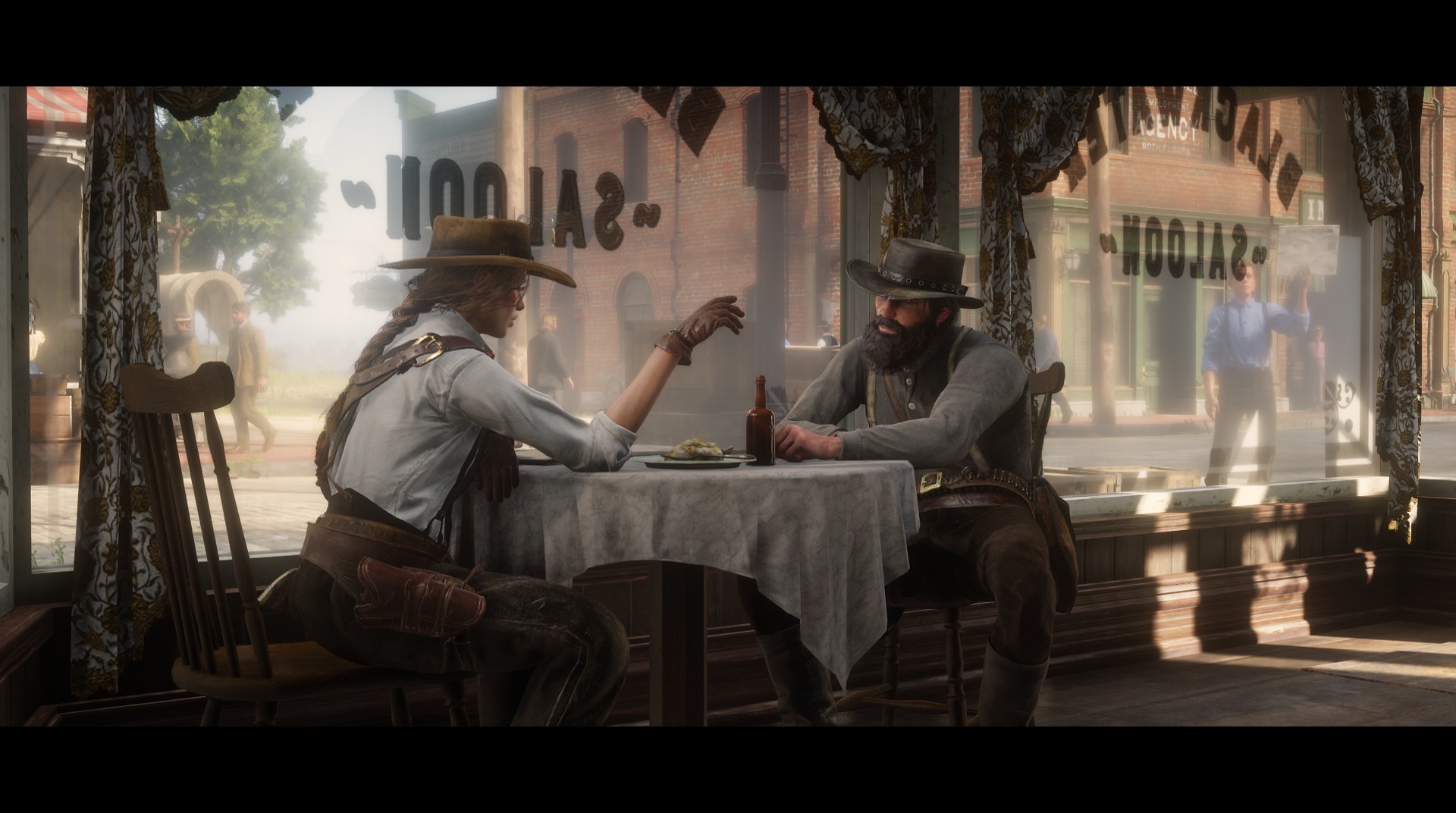 The game’s online mode is like a playable version of the TV show Westworld, where AI-driven NPCs (or non-player characters) mingle with players’ avatars, often including so-called “griefers”, who wreak destruction (during my photography workshop, one player insists on repeatedly lassoing and stabbing me).
The game’s online mode is like a playable version of the TV show Westworld, where AI-driven NPCs (or non-player characters) mingle with players’ avatars, often including so-called “griefers”, who wreak destruction (during my photography workshop, one player insists on repeatedly lassoing and stabbing me).
Griefers aside, RDR2 harbours supportive communities of botanists, naturalists and conspiracy theorists, who camp together in tribes and share tips on how to find UFOs or bait enormous grizzly bears.
Facebook group The Official Kickass Ladies of Red Dead Redemption 2 organise peaceful trail rides in the game. One user, MC_Ulfric, has taken to analysing its storms, gathering data on where and how the strike.
And, after Covid-19 lockdowns hit, gaming tourism has become a sanctuary for real-world street photographers like Vachek, who gather to “shoot street” using the platform’s photography mode, which allows them exposure and depth of field.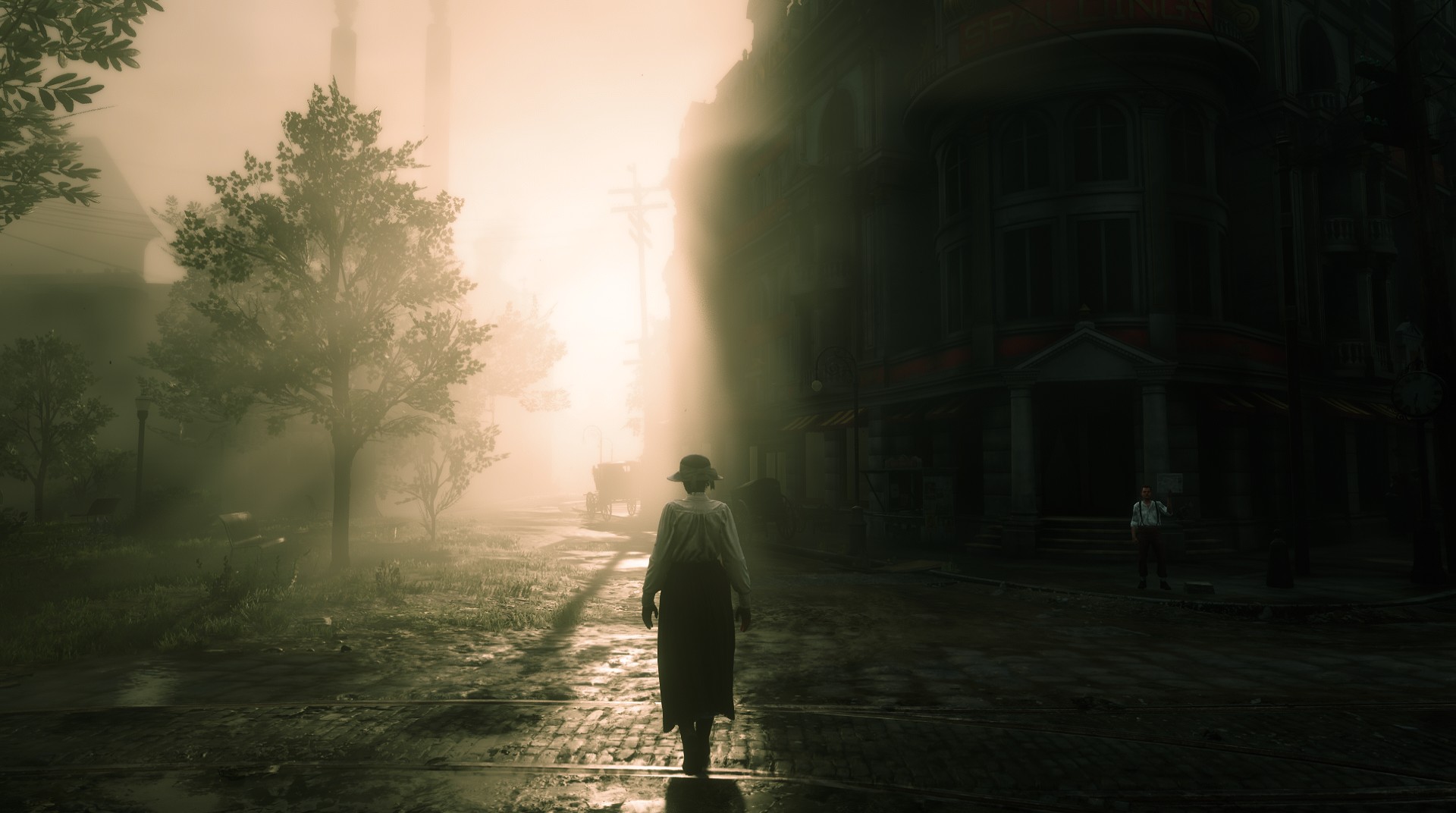 He often meets up with Sean Tucker, a London-based photographer with 370,000 followers for his YouTube photography tutorials, and the widely-respected Craig Whitehead, aka Six Street Under, who sometimes inserts sly RDR2 street shots for his 229,000 Instagram followers.
He often meets up with Sean Tucker, a London-based photographer with 370,000 followers for his YouTube photography tutorials, and the widely-respected Craig Whitehead, aka Six Street Under, who sometimes inserts sly RDR2 street shots for his 229,000 Instagram followers.
They hunt, fish, talk and shoot, often in Saint Denis, and occasionally using gas lamps to light moody street shots. With another photographer, Jeffery Saddoris, they have formed the Red Dead Poets Society, broadcasting some of these excursions live on streaming service Twitch.
“It’s obviously not the same as shooting in real life,” Vachek tells me. We’re speaking via mic and earphones attached to our controllers, as our outlaw avatars stand by the neon sign on the rooftop of Saint Denis’s Hotel Grand.
“But it is still a nice practice, where you can play with angles, lighting and framing in a safe space. The light in the game is gorgeous, the people are more true to real life than in almost any other game, and if I’m beaten up for getting too close, it doesn’t matter so much.”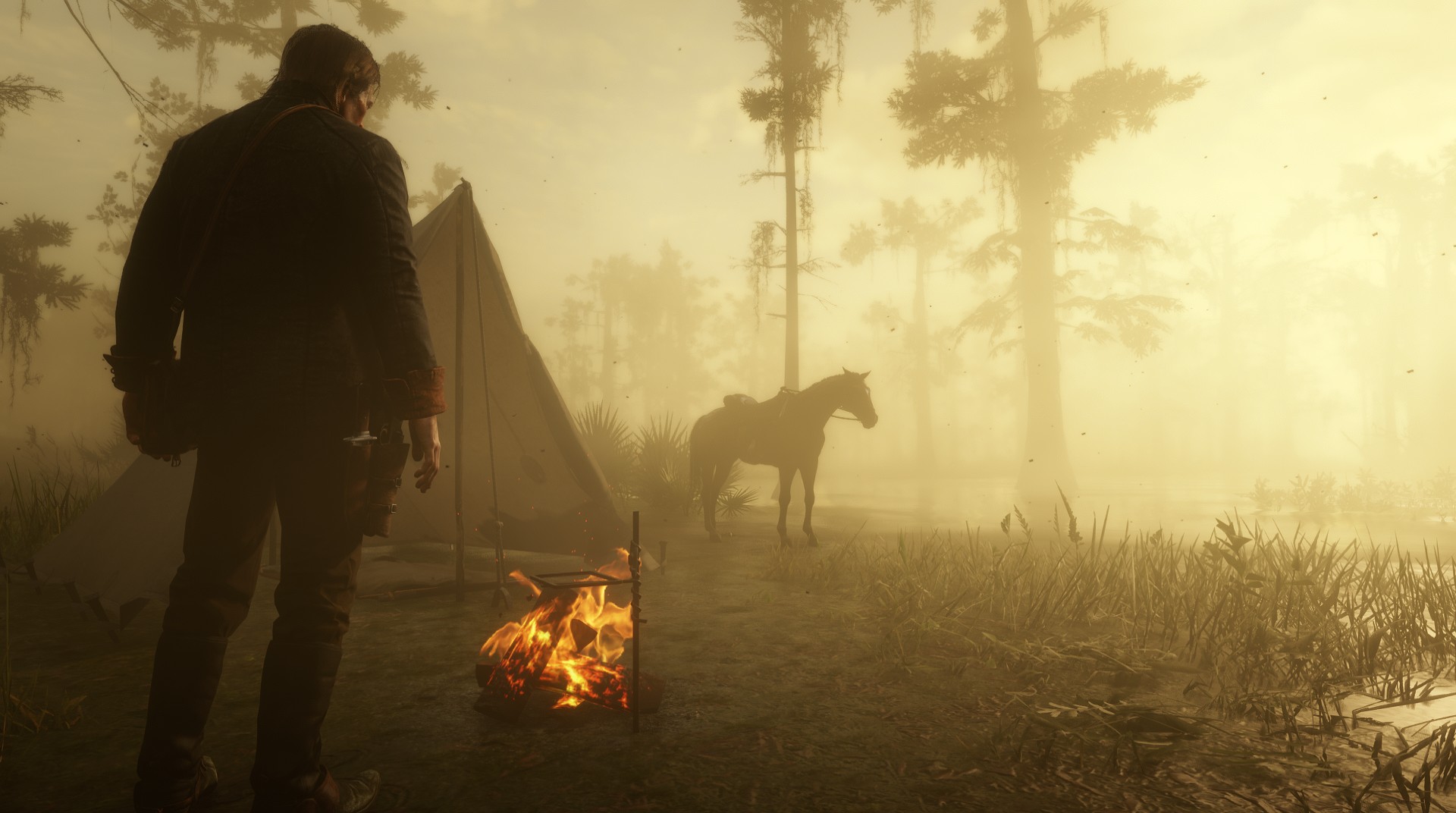 All of this is new to me, which is obvious from my clumsy avatar, The Skinner, who is prone to accidentally strangling strangers and stealing horses. I haven’t properly played video games since I was a student, playing GoldenEye on the Nintendo 64 when we really should have been protesting against the Iraq war.
All of this is new to me, which is obvious from my clumsy avatar, The Skinner, who is prone to accidentally strangling strangers and stealing horses. I haven’t properly played video games since I was a student, playing GoldenEye on the Nintendo 64 when we really should have been protesting against the Iraq war.
But, as a locked-down travel journalist, I recently bought a PlayStation 4, not expecting to get quite so hooked on games like the blockbuster-like Uncharted 4 and Shadow of the Colossus, finding myself dreaming of slaying the latter’s strangely beautiful leviathans.

Impressed by the storytelling as much as the graphics and the immersion in different worlds, I’ve started to wonder if – as with Vachek’s street photography – video games have become a displacement activity for my abandoned travel plans.
Certainly, the concept of virtual tourism has gained traction in recent years, accelerated by Covid-19 and encompassing everything from virtual reality hikes up Everest to a plan to “visit” the Faroe Islands by remote-controlling a resident with a helmet-mounted GoPro.
In February, Rough Guides released a print and online Rough Guide to the Xbox, detailing the most beautiful locations in Xbox games, from the genteel British countryside in supercar racing game Forza Horizon 4 to the post-apocalyptic Russia of first-person shooter Metro Exodus.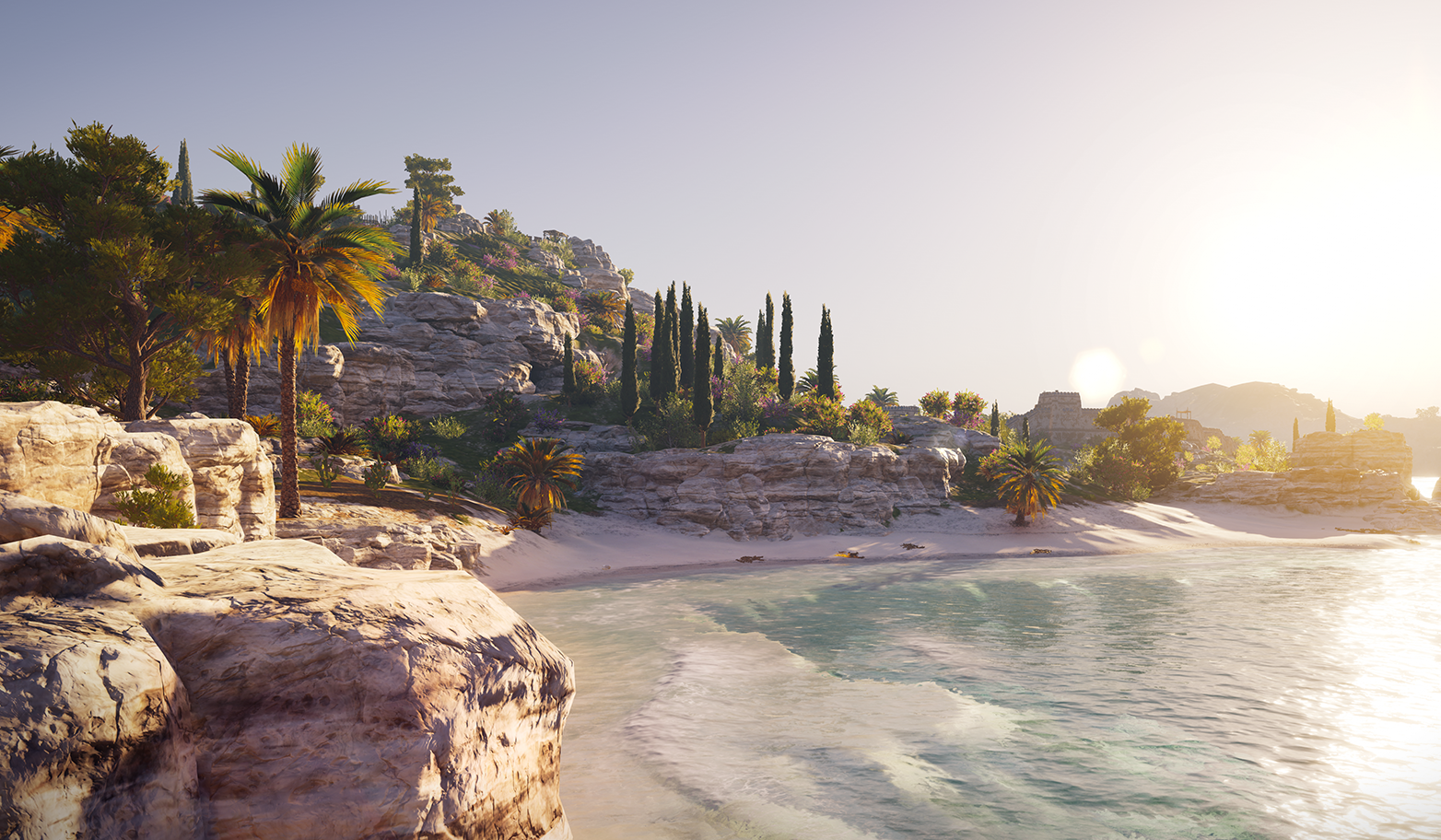 Meanwhile, almost every new game features a photo mode for envy-inducing holiday snaps (and free marketing for game developers). In infinite galaxy game No Man’s Sky, for example, gamers can move the sun to get better images.
Meanwhile, almost every new game features a photo mode for envy-inducing holiday snaps (and free marketing for game developers). In infinite galaxy game No Man’s Sky, for example, gamers can move the sun to get better images.
In upcoming samurai epic Ghosts of Tsushima, released in July, in-game photographers will be able to pick the direction and speed of the wind, and change the particles that float around the leaves.
The two most recent versions of the swashbuckling Assassins Creed open-world games – 2017’s Origins, set in Cleopatra-era Egypt, and 2018’s Odyssey, set in Greece in the years 431-422 BC – have echoed travel more directly than most, adding violence-free Discovery Tour modes.
They’re modelled after real tours, with audio guides and tidbits from historical characters like the Greek historian Herodotus, except that you have to swim to a boat to tour the Nile in Origins, and can choose treat the ancient city of Mycenae in Odyssey like your own parkour playground.
“We used the same world as the game, but cleared away the blood, the bodies and anything that might kill you,” says Maxime Durand, who has worked as an in-house historian at Ubisoft since 2010.
Durand says the Discovery Tours aren’t meant as a replacement for travel, but more as a fun educational tool that complements the game, and maybe a real trip.
While the game’s worlds are painstakingly accurate – 20 historians were used on Assassins Creed: Odyssey – the designers did tweak them for playability.
For example, requiring another playable area in the Great Pyramid of Khufu, Durand’s team of Egyptologists helped designers add a hidden chamber, based on a controversial theory by the French architect Jean-Pierre Houdin. Months after the game was released, cosmic ray imaging found that the chamber was really there.
While Assassins Creed is perhaps the most obviously touristy game, other developers are increasingly recognising that players want to slow down and enjoy the scenery. 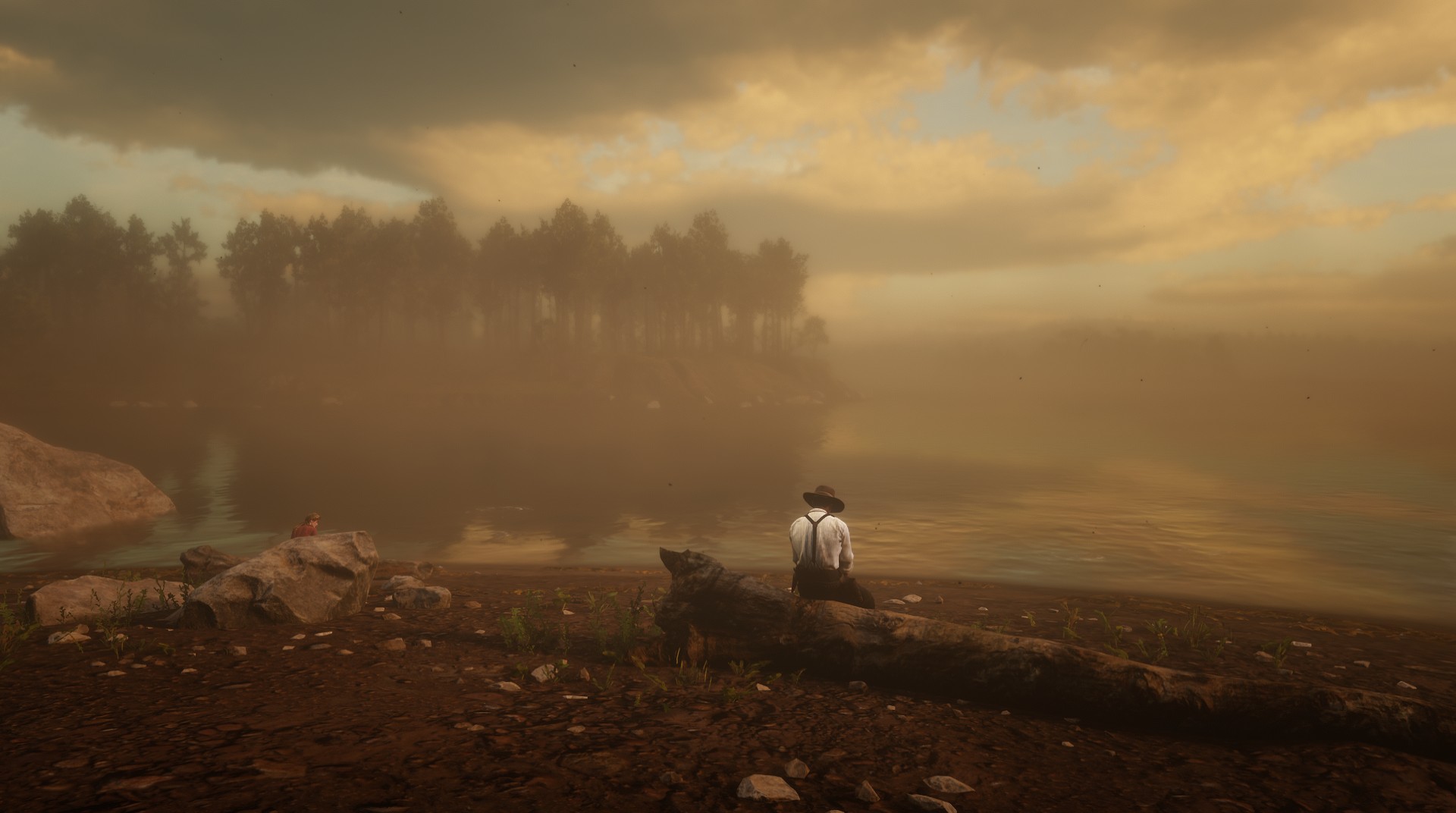 Many games feel like hikes, or internal journeys, like Firewatch, about a lonely fire lookout in Wyoming’s Shoshone National Park, escaping his marriage and former life; or Eastshade, in which a painter travels around a beautiful island, meeting owl obsessives and narky ship captains.
Many games feel like hikes, or internal journeys, like Firewatch, about a lonely fire lookout in Wyoming’s Shoshone National Park, escaping his marriage and former life; or Eastshade, in which a painter travels around a beautiful island, meeting owl obsessives and narky ship captains.
The big lockdown gaming hit has been Animal Crossing: New Horizons, a cutesy Nintendo Switch game in which players develop a deserted island, trading turnips on the stalk market and inviting friends to their islands. Players have hosted talk shows, recreated music festivals and placed protests against the Chinese government in the game (Hong demonstration leader Joshua Wong is a fan).
“Games have always been about exploration and escapism,” says Dr Pete Etchells, a psychologist and Bath Spa University academic who wrote Lost In a Good Game, a mixture of psychology, memoir and travelogue relating to games. “But the worlds of games have become richer, and it’s more expected than ever that people will use video game worlds in their own ways, which can be very creative or personal.”
The most powerful passages of Etchells’ book – which also disputes the supposed psychological links between video games and real-life violence – are where games intersect with his personal life.
He writes movingly about the frigid, desolate Storm Peaks in the World of Warcraft game, where – every year, on the anniversary of his father’s death when he was 14 – he sits and waits patiently for The Time-Lost Proto Drake, an infamously elusive dragon, which Etchells has only seen once, panicking and losing sight of it.
There’s also a certain sea view in Valhalla, a map in Halo 3, where he often sits and reflects on the premature death of a friend he once played the game with. “Games can be intensely personal, and vehicles for working out our own lives,” he says.
And there is an almost infinite number of ways to explore these virtual worlds. “I rarely play games like you’re supposed to,” says Gareth Damian Martin, a video game flâneur and the creator of Heterotopias, a beautiful and unapologetically high-minded online zine that links games to architecture and other cultural forms (one story covered Japanese architect Tadao Ando’s influence on the brutalist architecture of a paranormal government agency in the game Control). “I’m often just wandering, taking photos and passively observing.”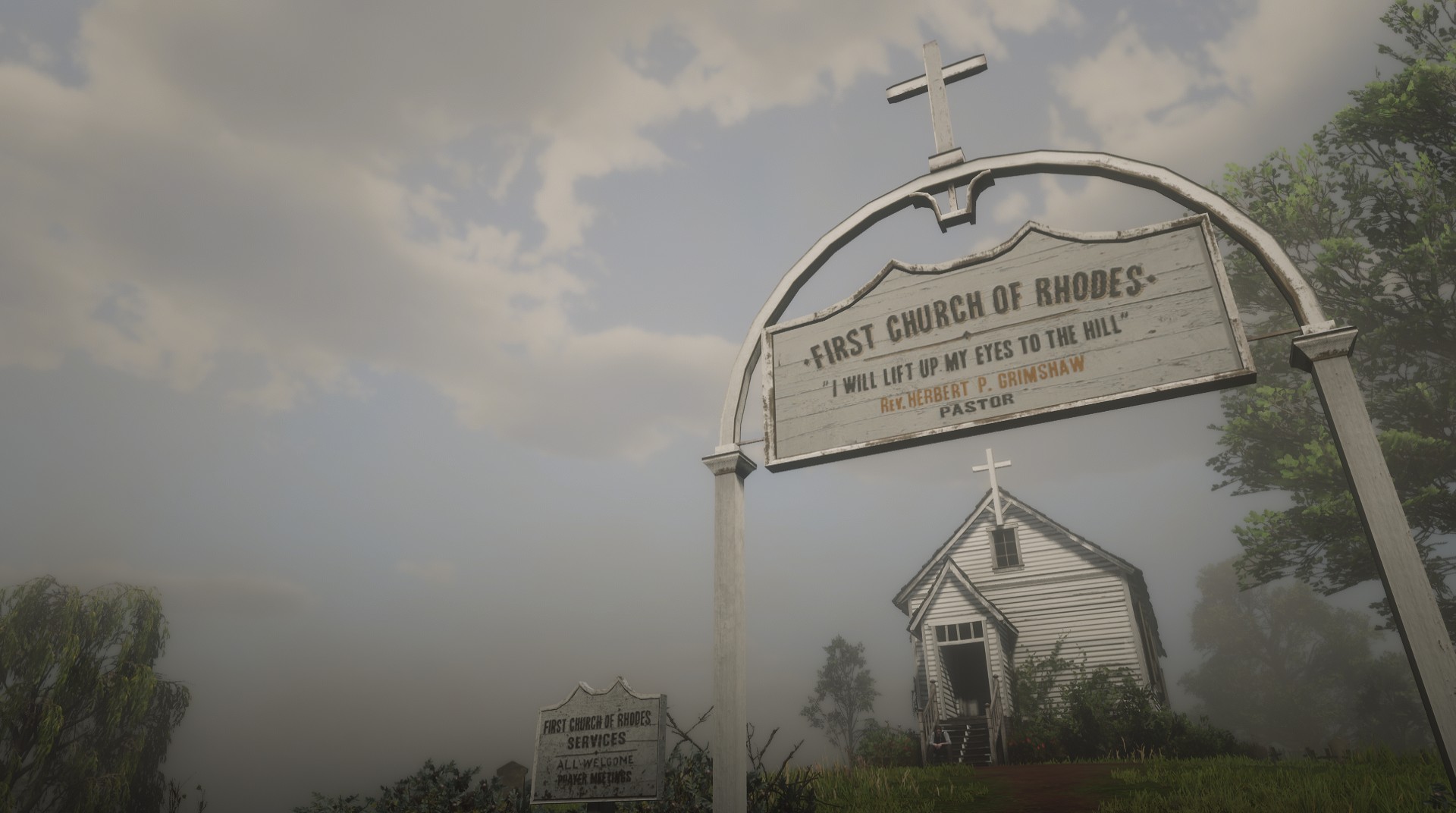 Martin has also designed his own game, In Other Waters, about a stranded biologist in a mysterious alien ocean; and shot a curiously haunting series of photographs, The Continuous City, for which he projected images from games onto a white wall and photographed them using 35mm black-and-white film.
Martin has also designed his own game, In Other Waters, about a stranded biologist in a mysterious alien ocean; and shot a curiously haunting series of photographs, The Continuous City, for which he projected images from games onto a white wall and photographed them using 35mm black-and-white film.
The series was exhibited at last year’s Lisbon Triennale. He has also played World War I game Battlefield I as a passive war photographer, and hosted workshops in Grand Theft Auto V covering both photography and the game’s urban architecture.
But is gaming tourism at all like travel? “There is immersion, but I think the comparison with travel can be misleading,” he says. “Going to a tropical island in a game isn’t like doing it in real life. To me, gaming is more like an escape to a different imaginative space. It’s maybe more like reading a novel than going on an actual trip.”
This makes sense to me. Perhaps the real story of my PS4 is that I haven’t replaced my travel plans with reading War and Peace or improving my Mandarin. I’m increasingly less conflicted about this. Games throw up worlds that are worth exploring, photographing, thinking about and even dreaming about. But the first chance I can, I’ll be travelling for real.
What’s coming next? Trend reports available to download HERE



